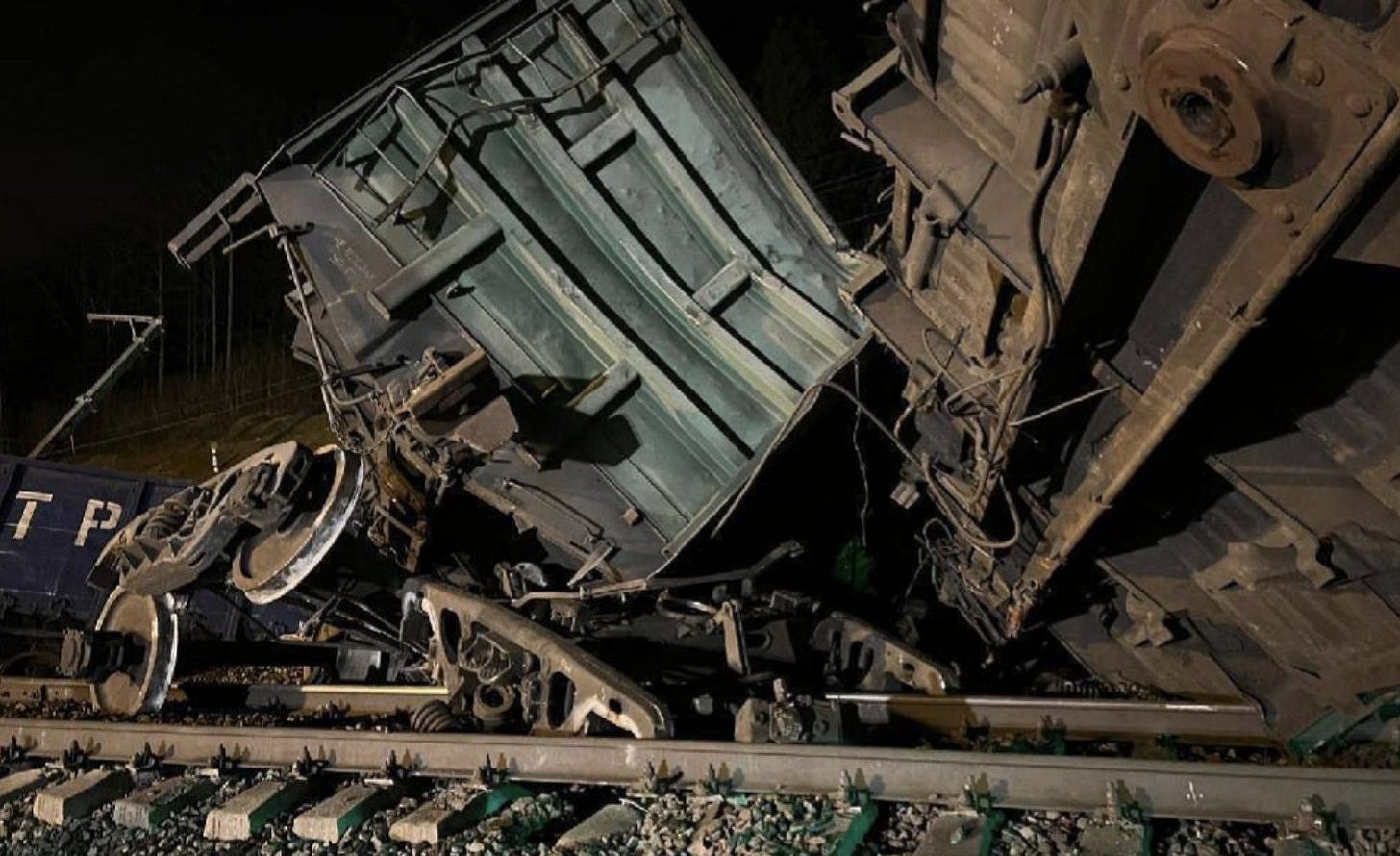How Ukraine Attacks Russian Logistics
Can they bring a railroad-dependent empire to its knees?

It was almost lost in the news about Operation Spiderweb this Sunday, then forgotten in the strike on the Kerch Strait Bridge on Monday, that two Russian train bridges also collapsed, derailing a freight train and a passenger train. Altogether, seven riders were killed and at least 79 more civilians were injured. Russian officials blamed both collapses, which took place a few hours apart, on explosions. Both rail lines were put out of service.
The Kerch bridge is a logistical corridor. Ukraine’s precise choice of target — the stuctural supports driven into the loose soil to bear the weight of the archway — is damaging, though not damaging enough to close the bridge entirely. Whereas destroying a bridge is actually very difficult to do, damaging one is easy. Threats to the integrity of the structure of the bridge raise the costs of maintaining it. Meanwhile, Ukraine has hit trains on the new ‘land bridge’ route to Crimea through occupied Ukraine.
Russian military logistics are rail-dependent, so attacking the railroads is an obvious strategem. Less obvious is the role that the Kursk offensive may have played in securing this campaign against Russian rail logistics. For while the world dismissed the withdrawal from Kursk Oblast as inevitable, in fact the occupation of Sudzha may have been one of the most important intelligence coups of the entire war. Maybe. There is that pesky fog of war problem.



